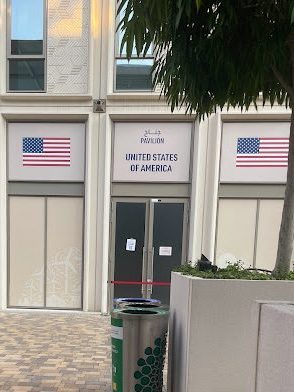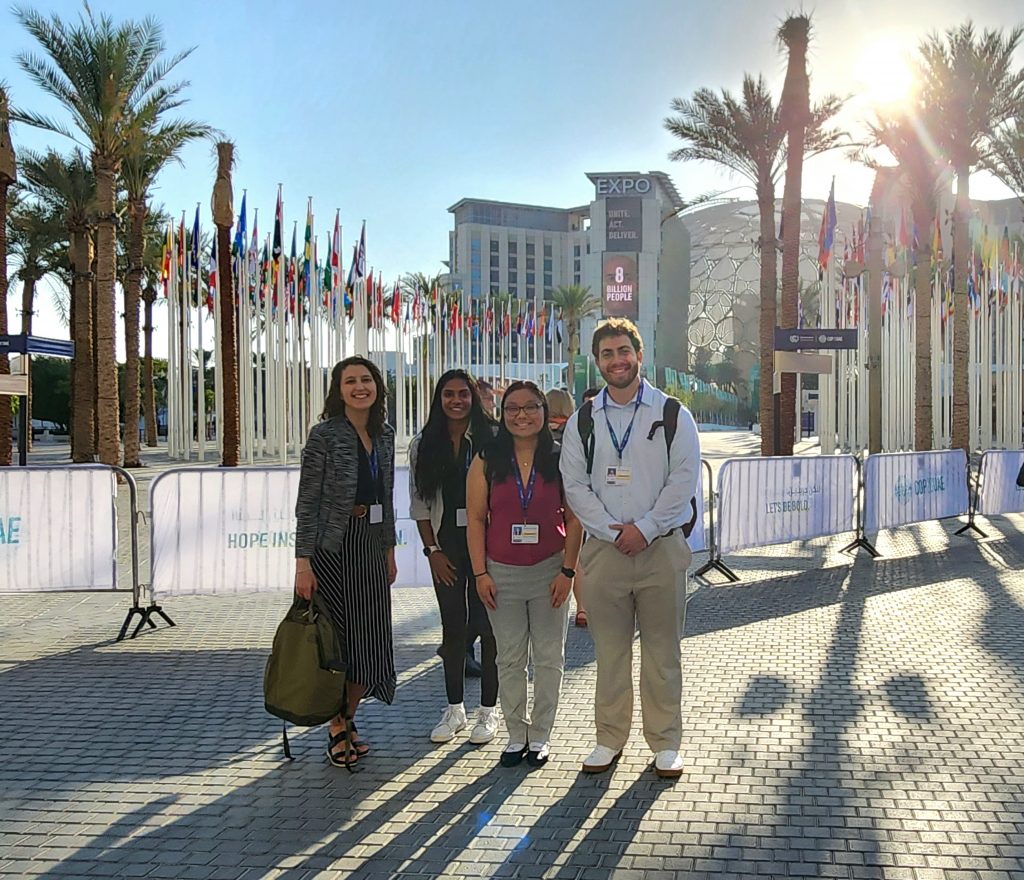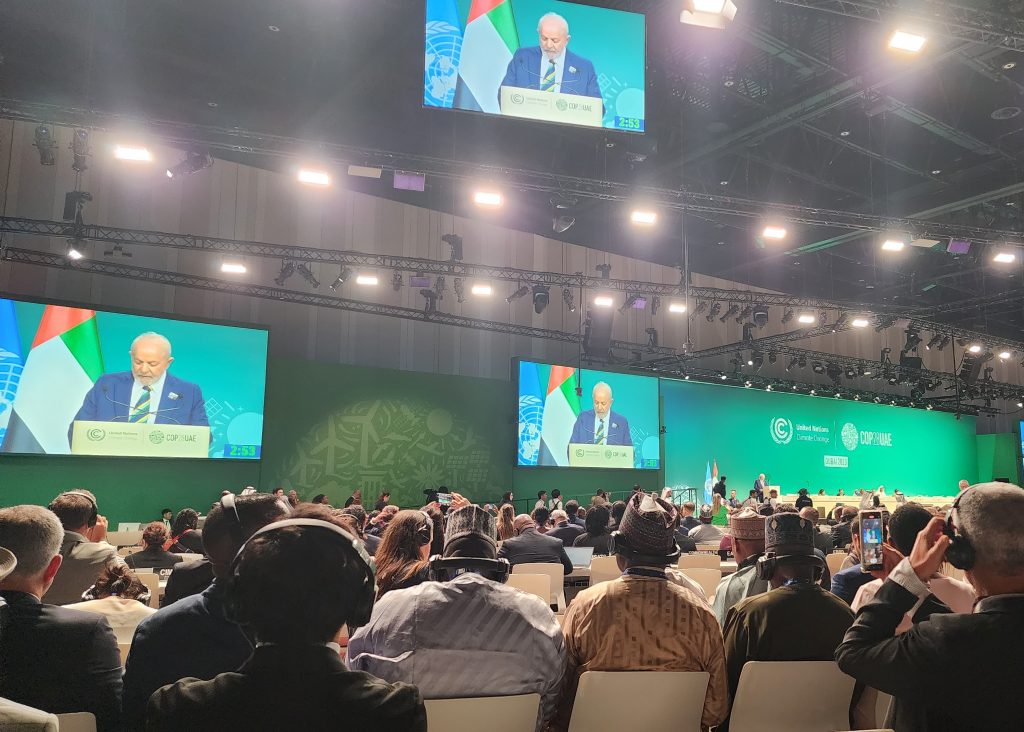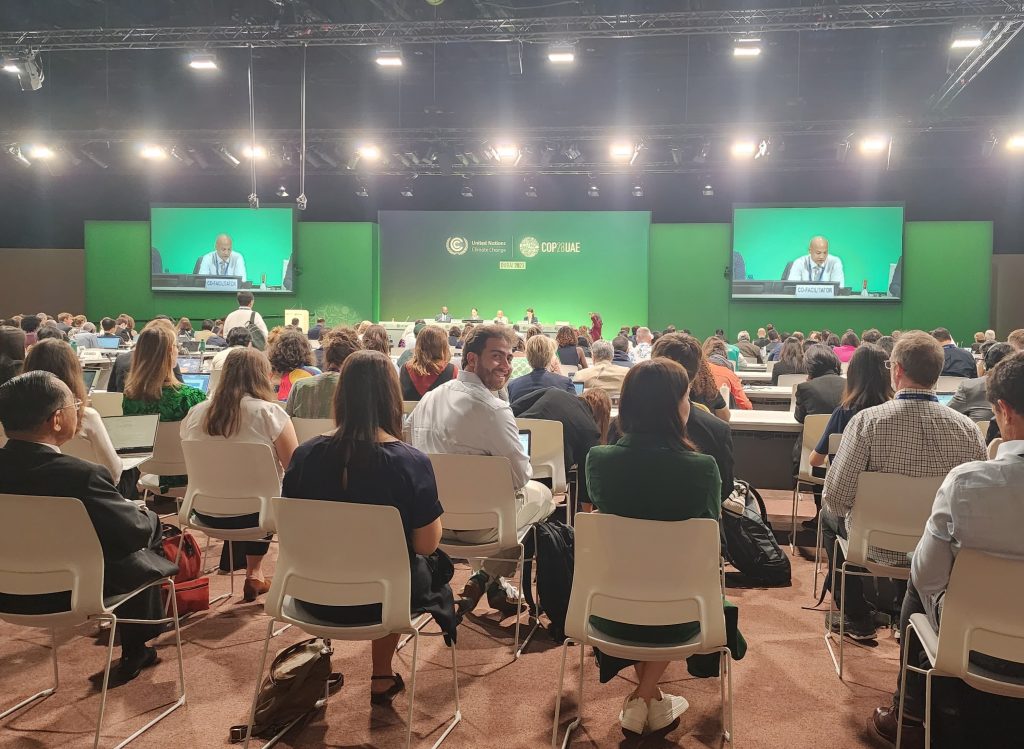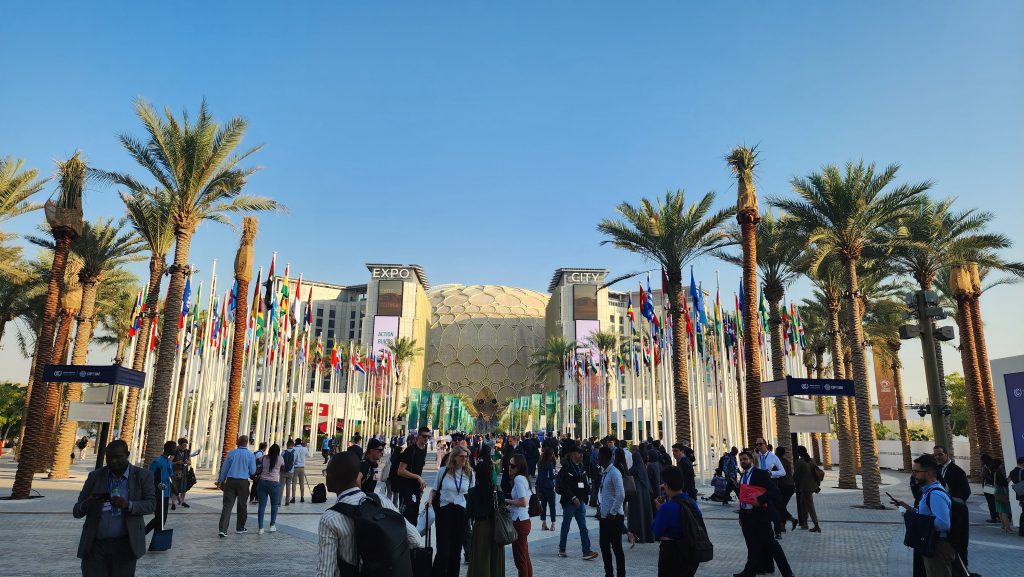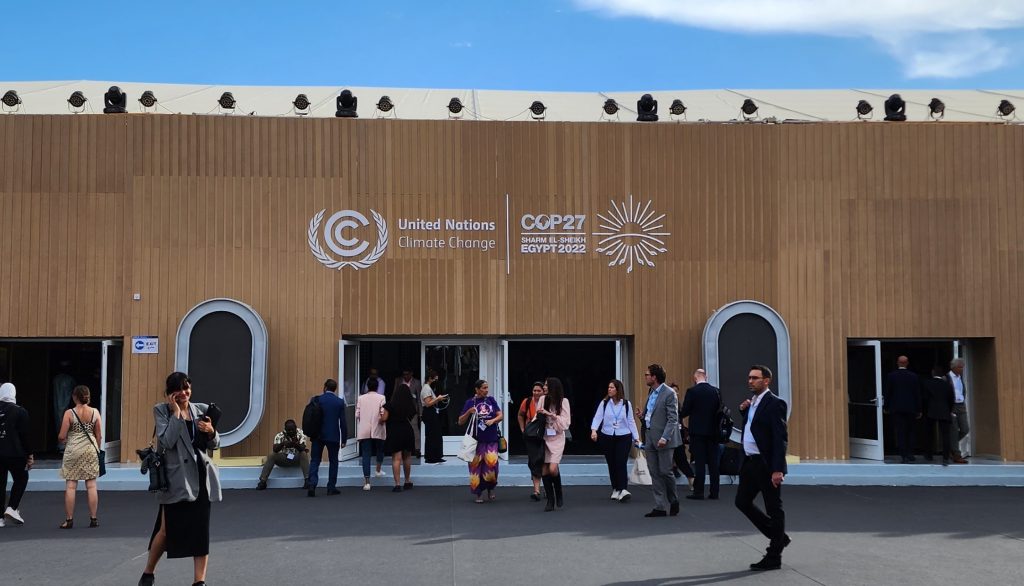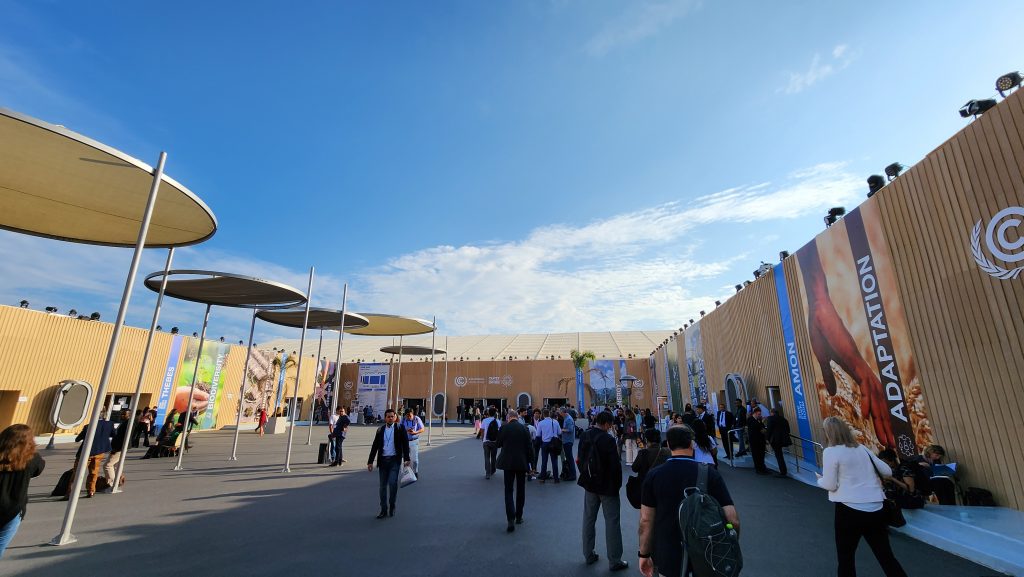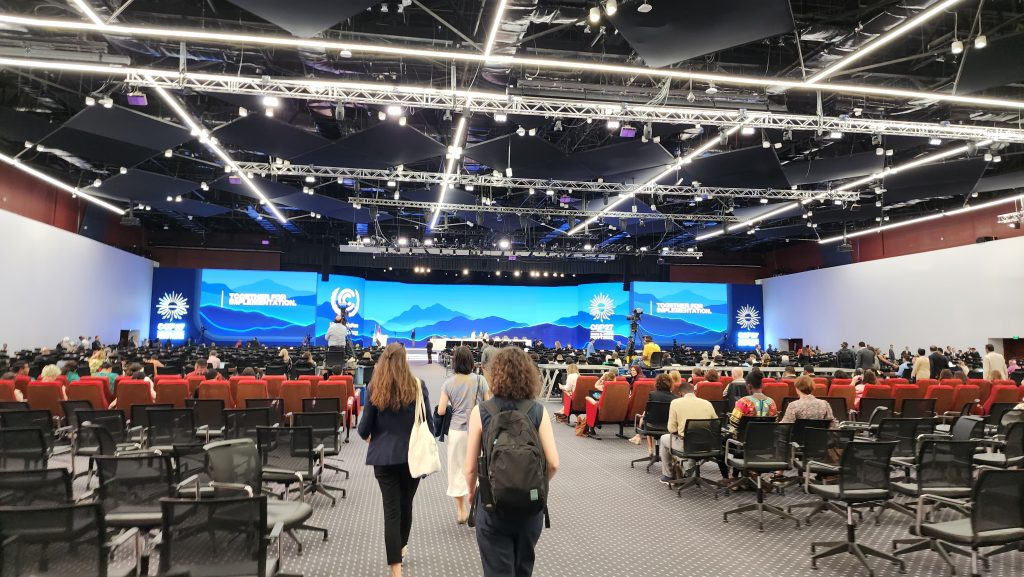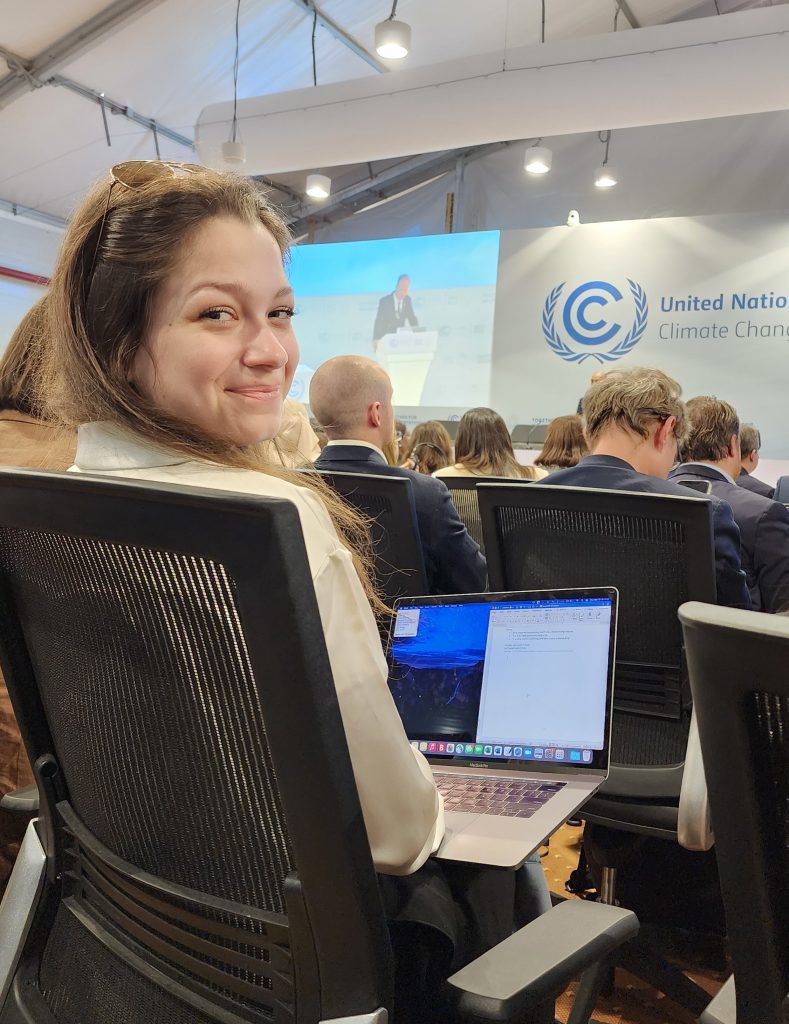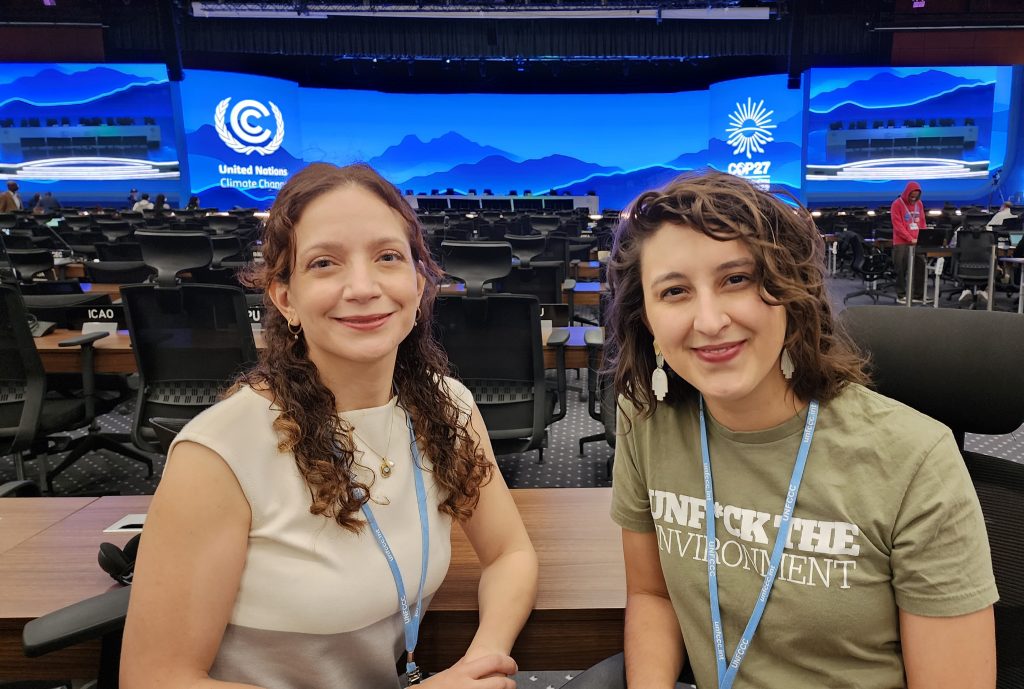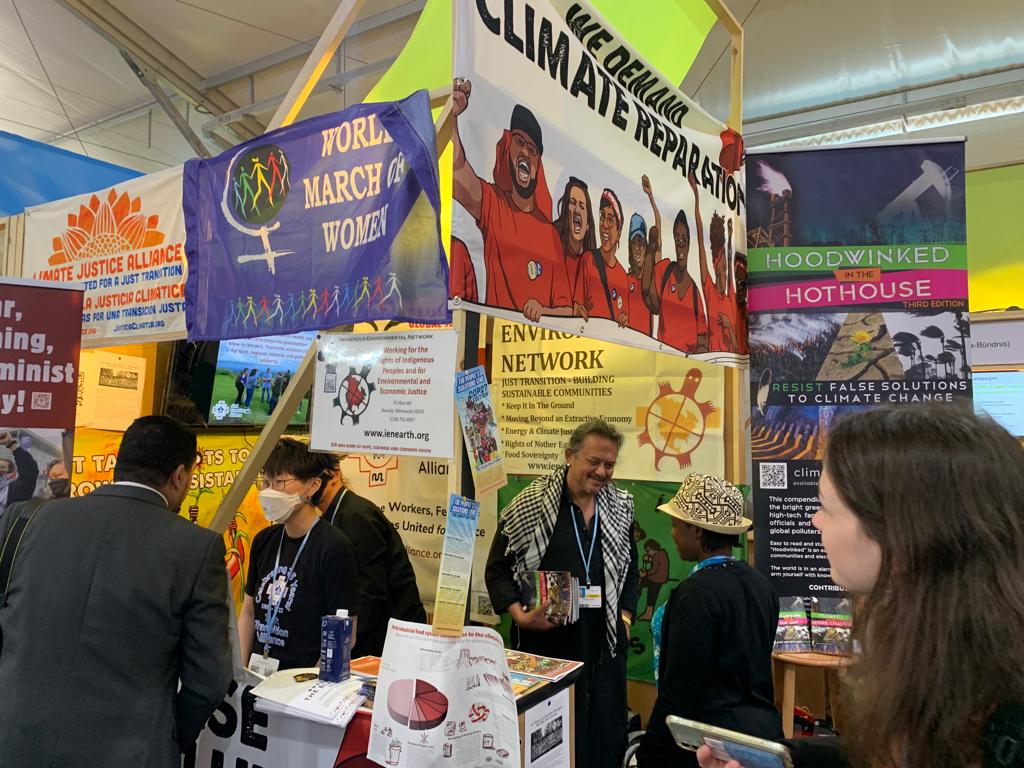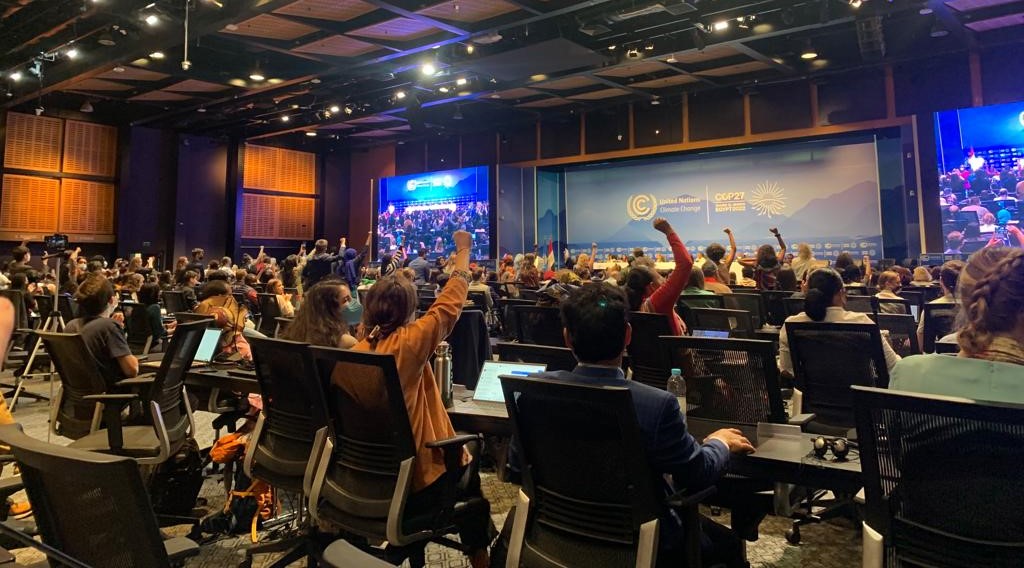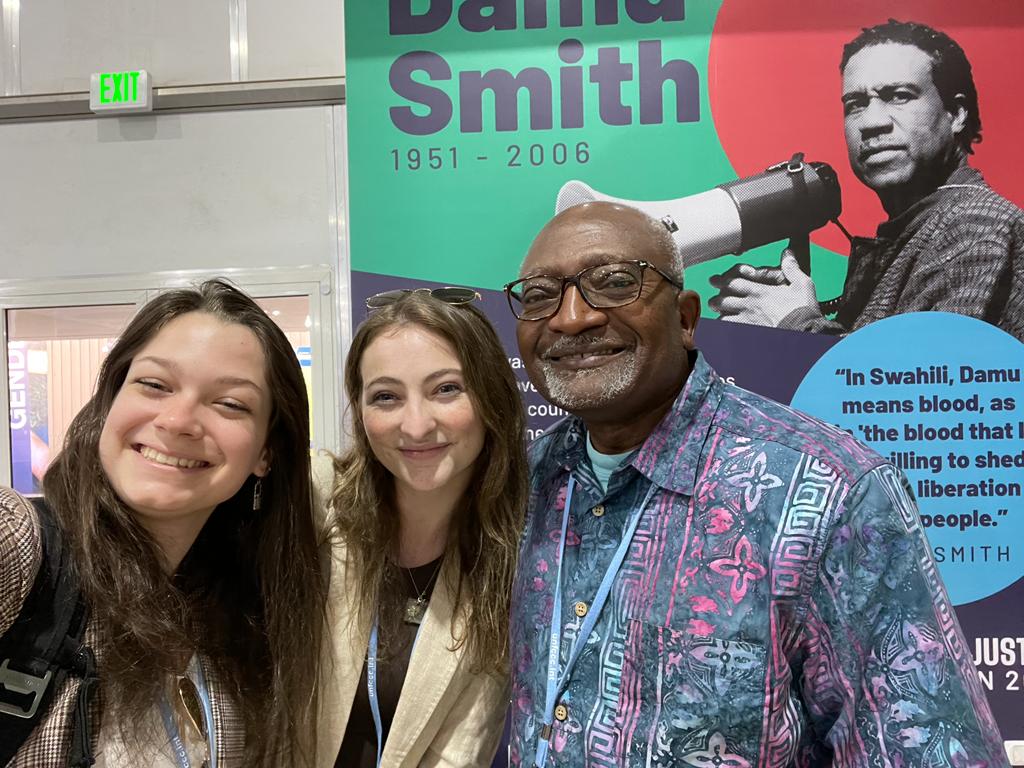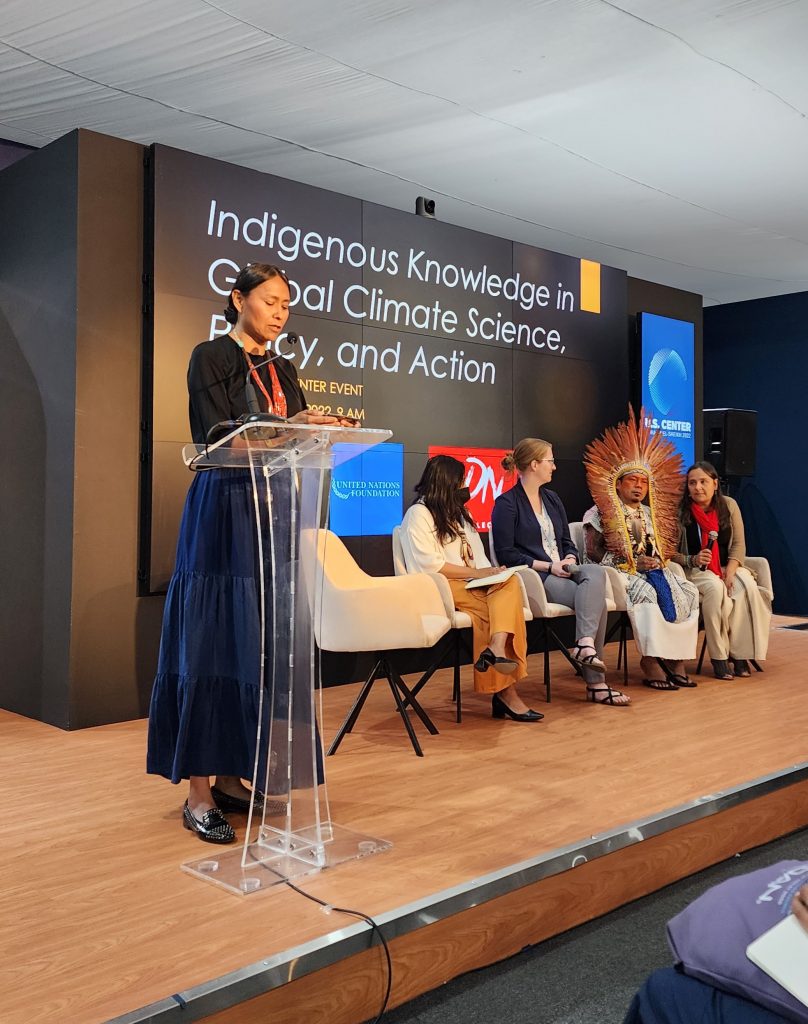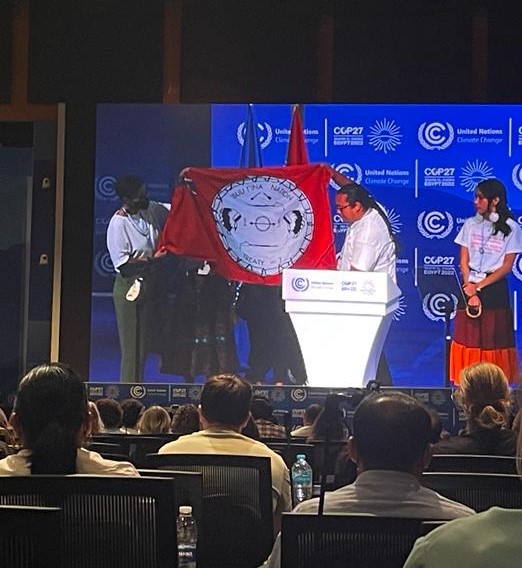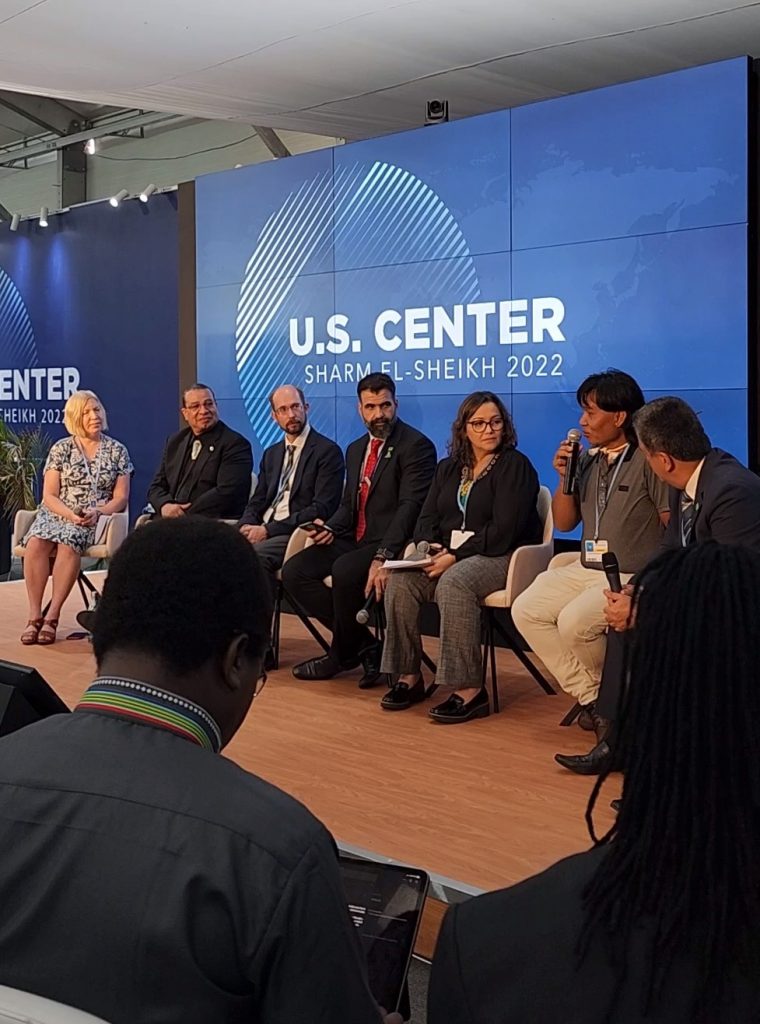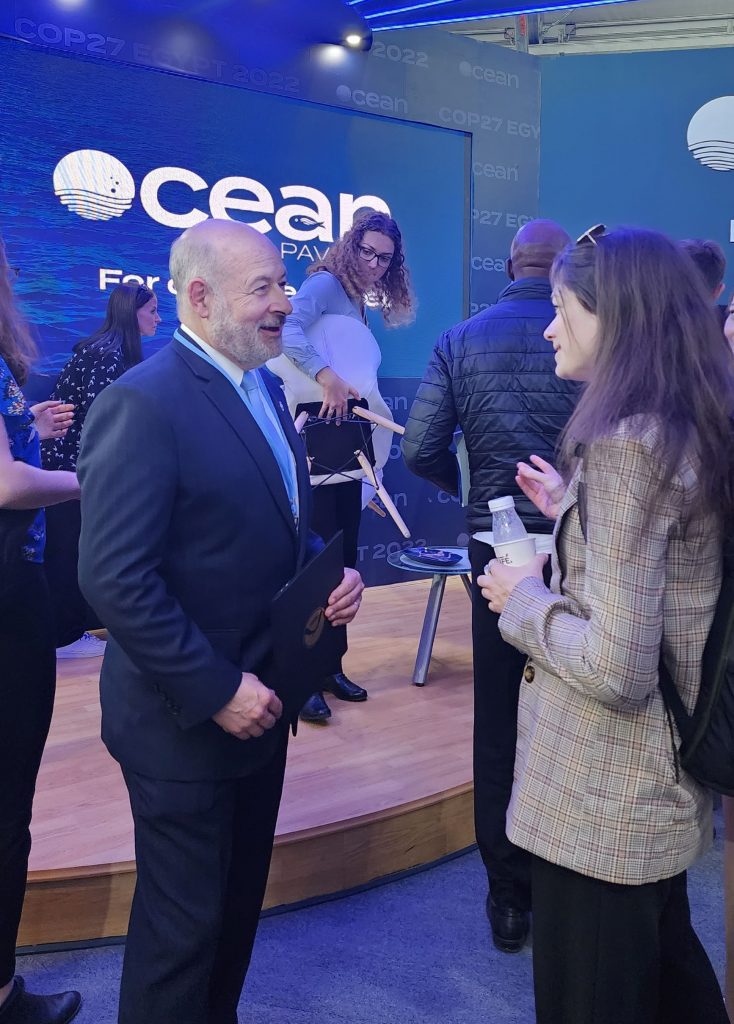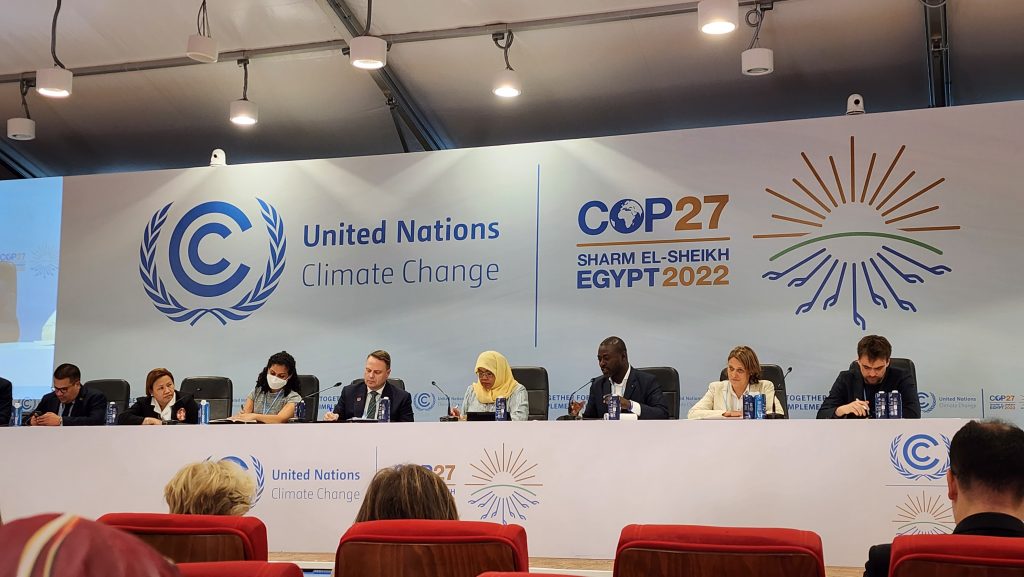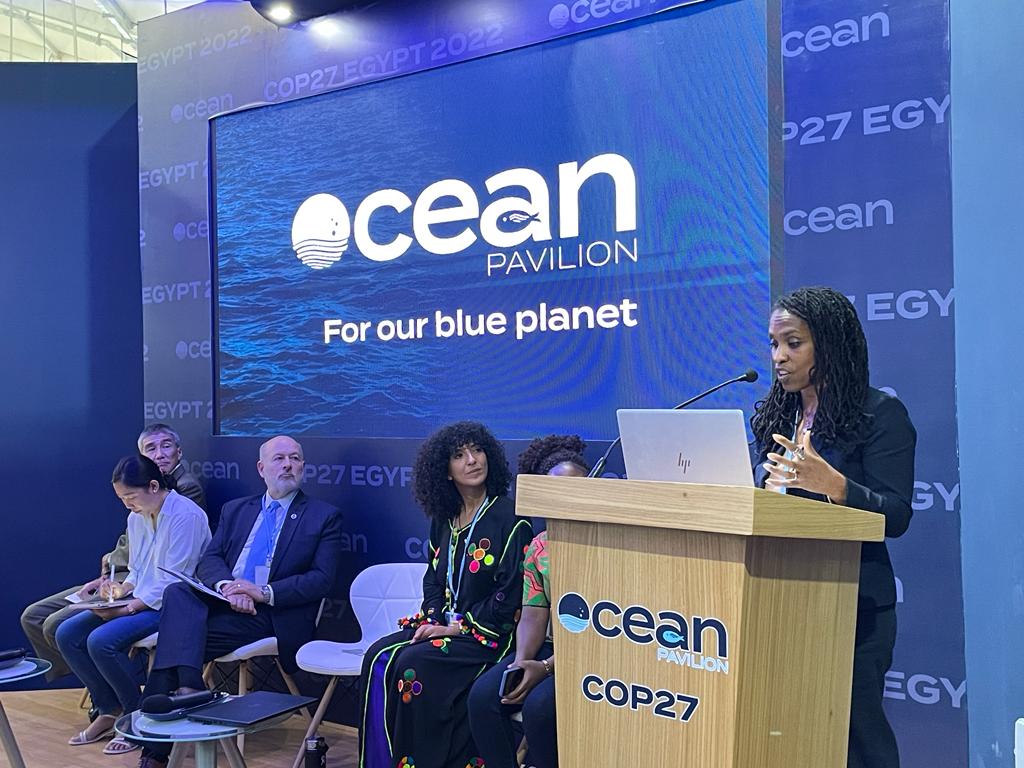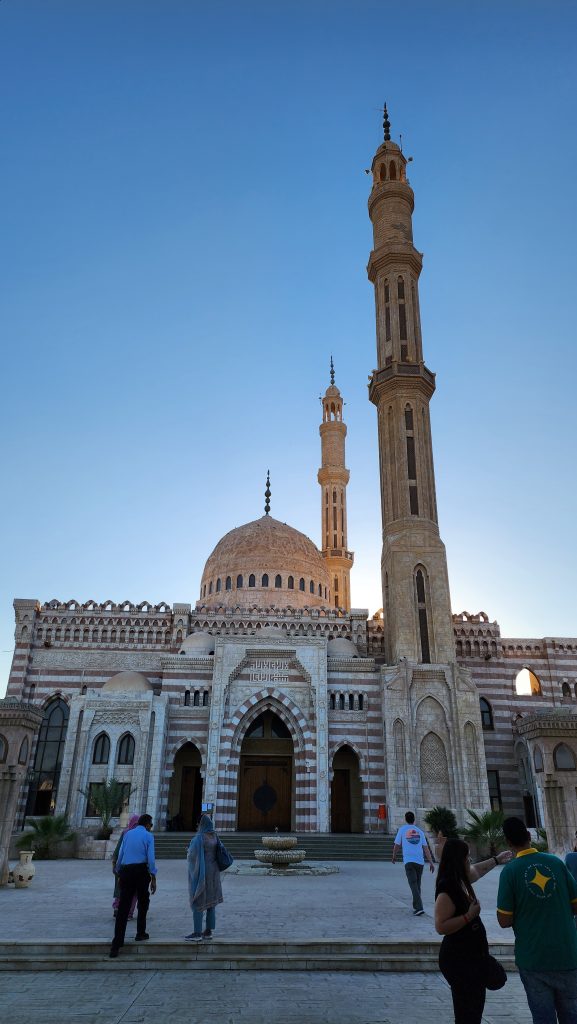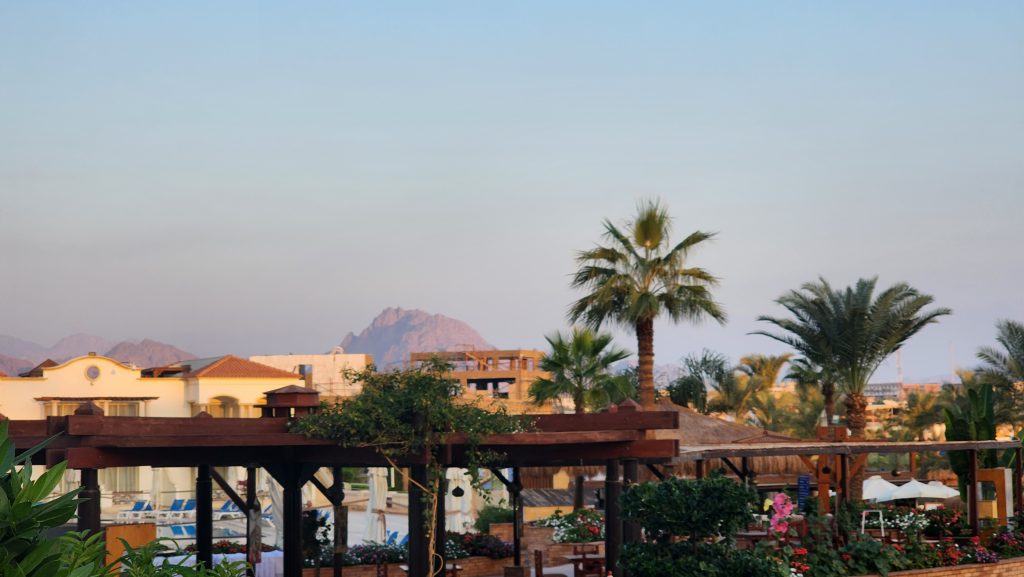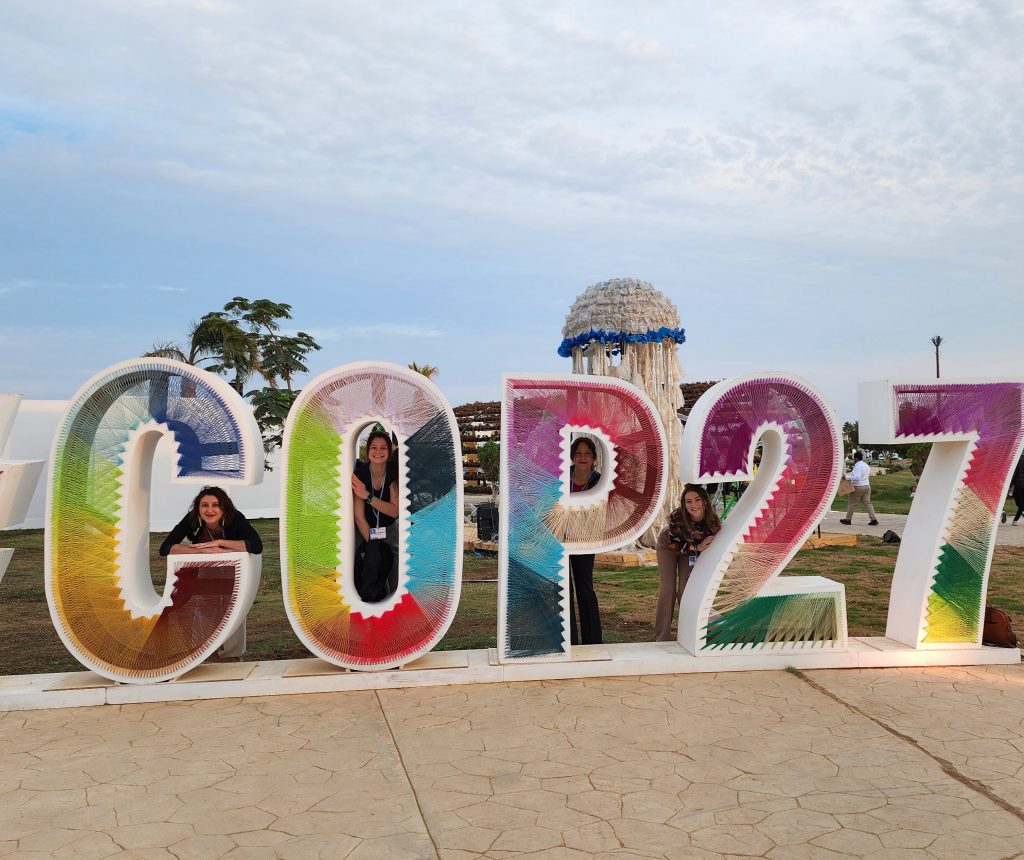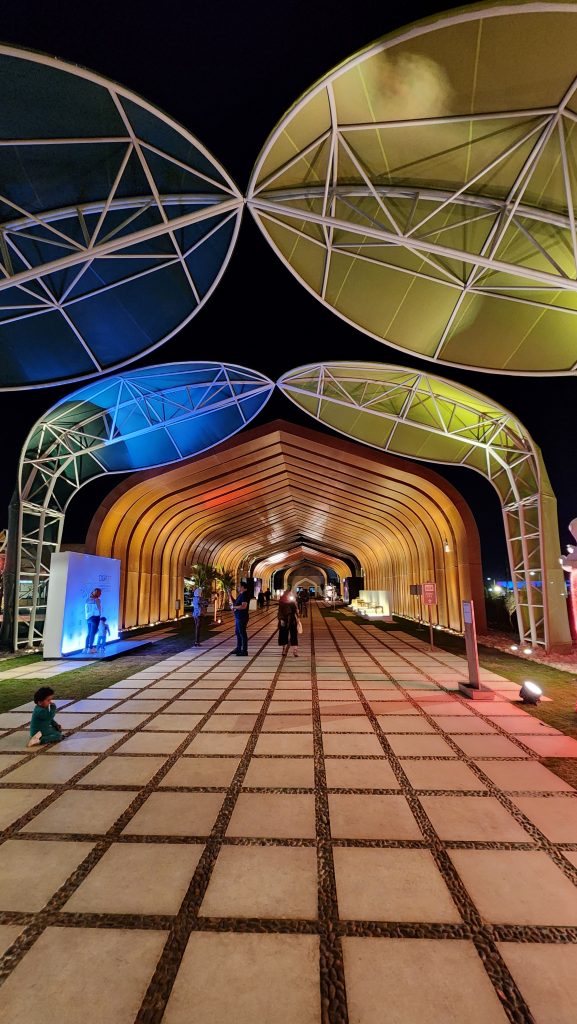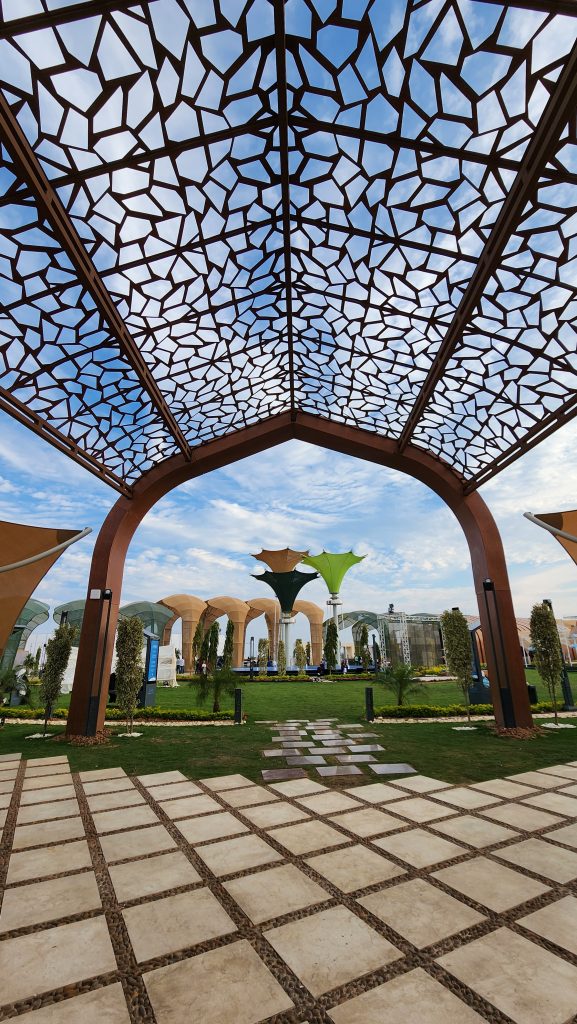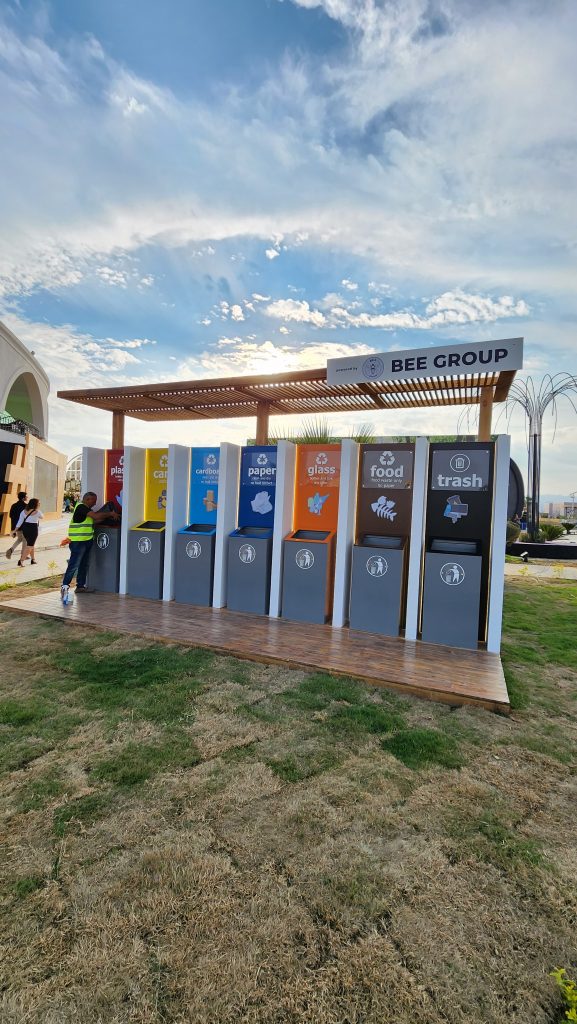This story was submitted by Clara Kilburn (she/her), ’24 Chinese Language major at Pomona College, who connected with the Swarthmore student delegation for the COP28 program.
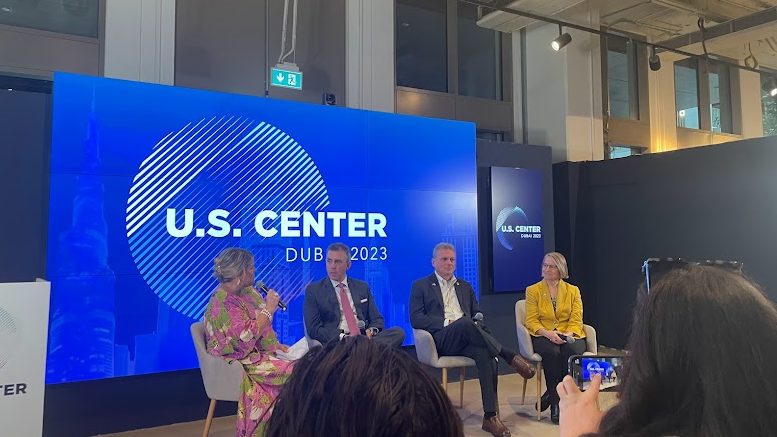
At COP conferences, a large number of countries have dedicated pavilions. At COP28, this took the form of spaces in identical buildings laid throughout the venue. Depending on the country, pavilions hosted presentations on climate issues faced and modes of solving them in the respective country.
The U.S. Center was clearly one of the more popular ones, reflecting the large number of Americans at COP28 and the fact that many foreign nationals were interested in U.S. issues. From my perspective as an American attendee, the U.S. Center illustrated the ways that the U.S., (for better or worse) is critically important in the climate crisis. In a multipolar world, the U.S. still holds outsized influence in global politics and is one of the largest per capita greenhouse gas emitters.
One of the events I attended at the U.S. Center was hosted by the Conservative Climate Foundation, advertised as a “Fireside chat with House Republicans about how the House Energy and Commerce Committee is working to advance a new era of innovation and American leadership to reduce emissions, bolster energy security, and raise the country’s standard of living”. The official recording of the event can be watched here.
The event featured Rep. Kelly Armstrong (R-ND), Rep. Buddy Carter (R-GA), and Rep. Mariannette Miller-Meeks (R-IA).
During the event, listening to the Representatives, I felt a bit like a small fish in a big pond at COP28. I became acutely aware of what had been missing in my experience of COP28 thus far. The Republican Representatives’ personas were distinctly different from previous Americans I had interacted with at COP28. Rep. Buddy Carter’s striking southern accent was particularly notable. I realized that as a Michigander and current student of a very politically liberal California school (Pomona!) attending COP28 with the logistical support from another school with a liberal-leaning student body (Swarthmore!), I had not thus far pursued opportunities to listen to people of a “conservative” political background talk about their concern for the climate and their strategies for solving problems.
The U.S. House Republicans talked about their personal passions for protecting the environment and their sincere belief that protecting the environment is also crucial for protecting the American economy and security. Rep. Miller-Meeks at one point made a contentious comment that startled the room, to which a couple of individuals who looked not unlike me (young women at COP, possibly fellow college students) walked out of the room in protest. I too was initially shocked at the comment, but after listening to what she had to say afterwards realized she didn’t mean to “stir the pot” and went on to say less controversial, and rather in my opinion, quite rational comments.
During these few minutes of her speech, I faced the daunting realization that too many conversations along those of different ideological backgrounds and with different ideas in the climate space are shut down before they even begin.
At COP28, this phenomenon appeared to happen more broadly as people (scientists, entrepreneurs, engineers, social scientists) who work on the same issues and likely have the same opinions, can connect, network, and collaborate during the two weeks of COP. Those who don’t agree don’t have to interact as they follow different negotiations, attend different side events, and have different professional networks. Social cliques and professional huddles of people were plentiful all around COP28.
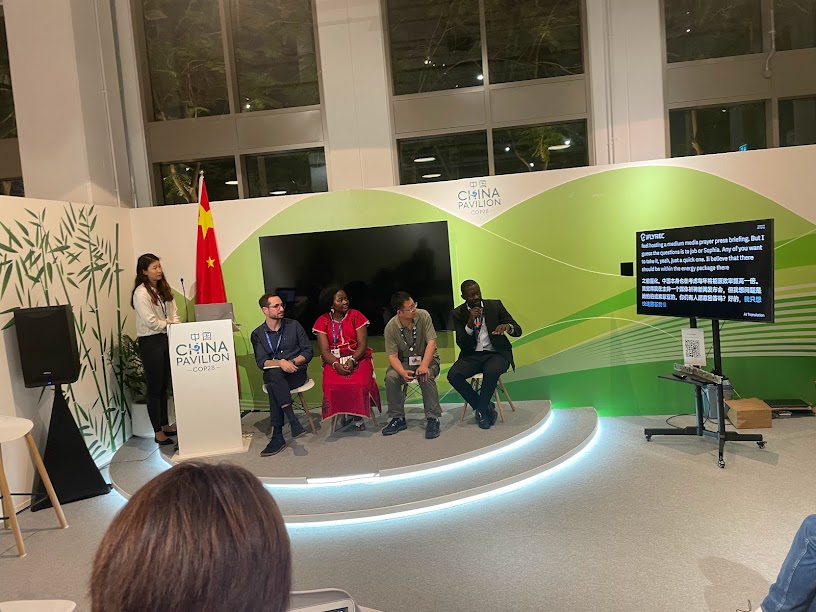
This experience made me think about how the most formal global pursuits to fight climate change rest on agreement between all nations (political negotiations) but more collaborative productive action among groups who think differently is potentially lacking. Not just global pursuits, but also U.S. pursuits against climate change that involve various groups. Collaborative efforts among the diverse peoples of the U.S. in the fight against climate may also be lacking, and this House Republican event helped me reflect on the following:
The USA, being a critically important country in the global progress of fighting climate change, unfortunately cannot meet holistic climate goals if only the “blue” states do so. So, in the current state of partisan politics, the climate crisis needs to not be a blue issue and rather a bipartisan one. The only way for it to become a bipartisan issue is for it to include, and welcome, “Republican” voices and others stereotypically thought of as being “disbelievers” and enemies of those who care for the environment.
At COP28 there was a guiding concern in many of the discussions about the negotiations that the state of global environmental protection efforts are currently “not enough”. Observing this phenomenon of those who think alike grouping together at COP, and realizing the lack of diverse representation of Americans at COP28 from the event, it became clear to me that the climate crisis isn’t going to be solved with the people already engaged in climate working harder, it is going to be solved when more people are engaged in climate.
This experience and subsequent realizations at COP28 have significantly impacted my professional goals. As I’m completing my last semester at Pomona Spring 2024, I’m hoping to engage with others who are different from me now and post-graduation. I hope to further discover how I can contribute to motivating and bringing others into the climate space.
In addition to the great experience of attending COP itself, I think the structure and activities at COP can also serve as an example to students of what they might be missing in their Swarthmore/Pomona/College experience – whatever that may be for each student as we sort out where we fit best to support the global fight against climate change.
